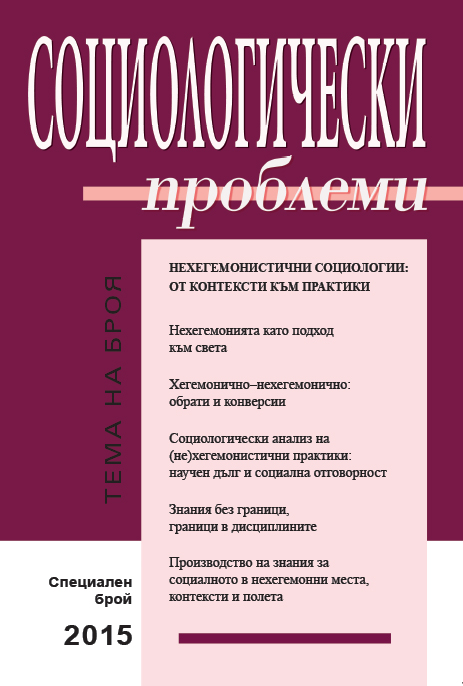

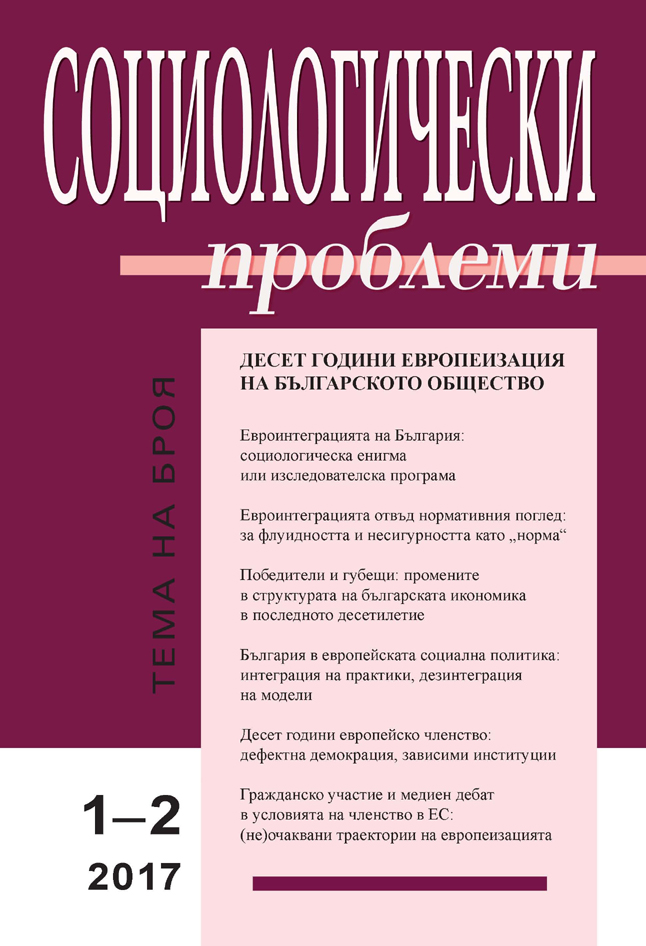
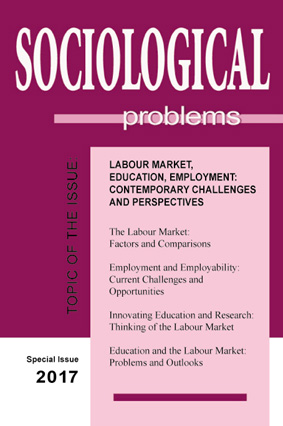
Keywords: vertical education-job mismatch; higher education; unemployment; heterogeneous good
The article aims to explore the social embeddedness of the labour market misbalances for highly educated people, using Bulgaria as a case study. It argues that the labour market misbalances for highly educated people mirror structural problems in the economy and the educational system. These misbalances represent a way for fighting against unemployment, but this comes at a certain “price”. The adopted theoretical approach to graduate employability highlights its two sides, the individual’s and the socio-structural aspects. The analysis is based on data from the Bulgarian Universities Ranking System and the National Social Security Institute and uses descriptive statistics and multilevel modelling. The study reveals that the level of vertical education-job mismatch depends on profiles of higher education institutions and professional fields. It also differs significantly by gender, year of graduation and educational degree. The article shows that under conditions of its massification and diversification, higher education increasingly functions as a positional and heterogeneous good.
More...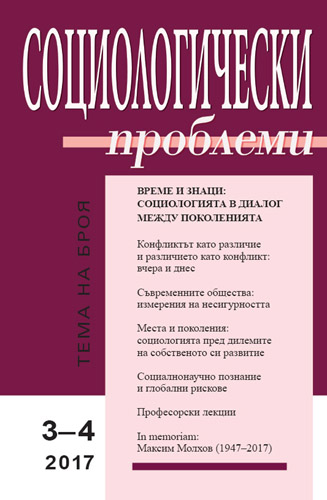
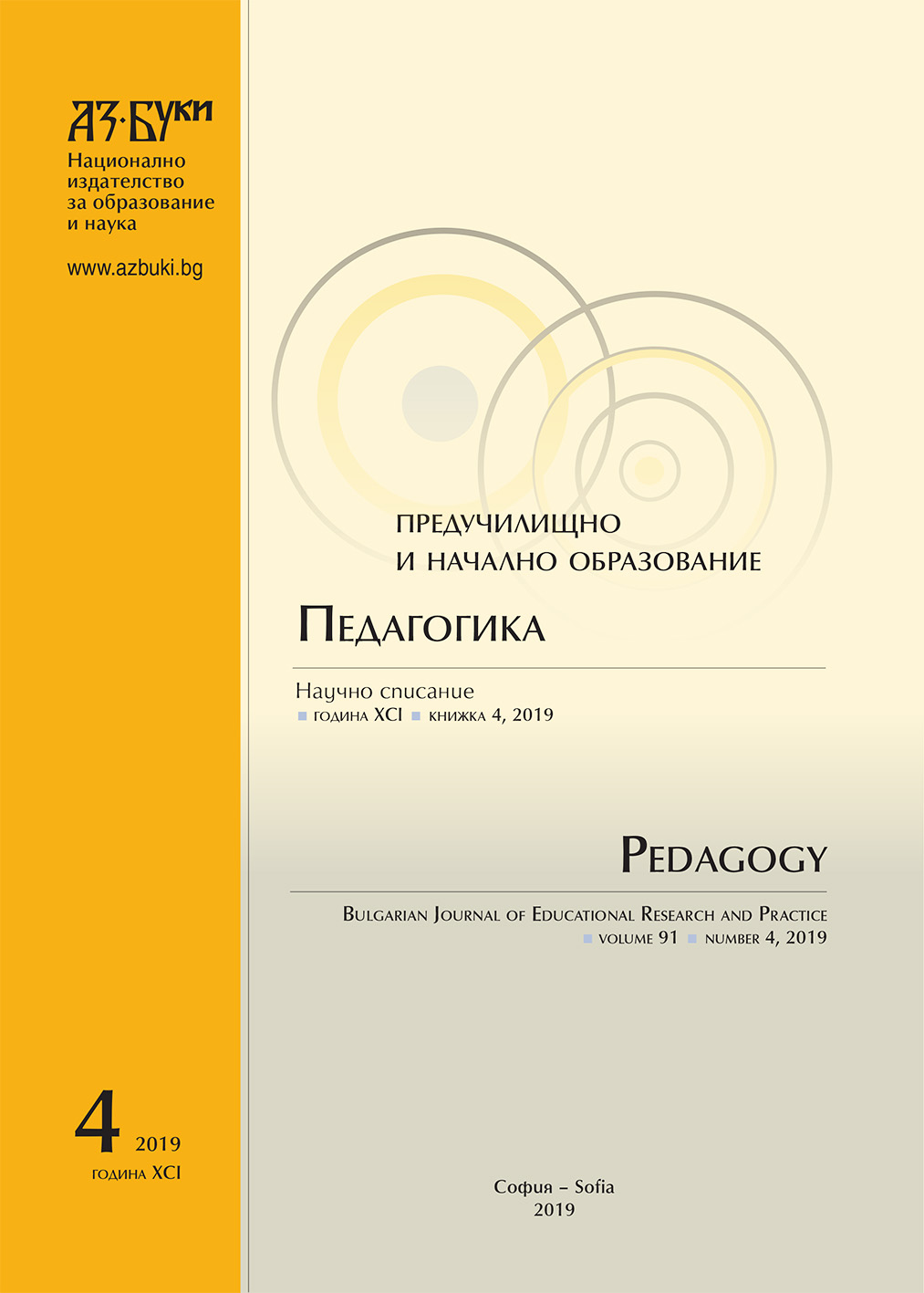
Keywords: non-formal education; capability; young adults; European comparative perspective
The article’s purpose is twofold. First, it aims at demonstrating the heuristic potential of the capability approach in rethinking the lifelong learning and in particular the non-formal education. Second, it aims at exploring the factors which influence the participation in non-formal education among the group of young adults in a European comparative perspective. At a theoretical level, it applies the capability approach framework to the conceptualizing non-formal education as a capability. At a methodological level, it makes a secondary data analysis on Adult Education Survey (2011) and the official statistics by using descriptive statistics and multilevel modeling for 17 countries. The results show that there are considerable differences in the participation in non-formal education between the European countries and that the participation in non-formal education is much more than personal responsibility and is, in fact, a result of a wide range of factors both at individual and country level. These factors may constrain but also enable the chances which young adults have to participate in non-formal education. Among the factors which are identified as important at the country level are the economic climate, the active labour market measures, the expenses paid by the employers for training and the level of innovation.
More...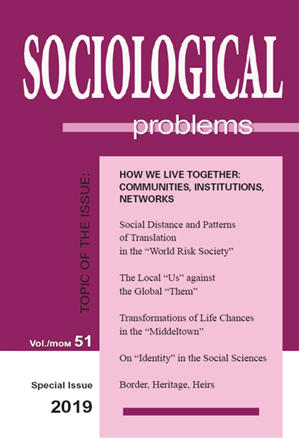
Keywords: glocality; identification; categorization; refugees; “Us” vs “Them”
The article poses two questions: how glocality is constituted in modern Bulgaria; and how the “us” identities (“the local people”) and “them” identities (“the refugees”) are constructed. The author concludes that the perception of glocality is increasingly constituted around the axis of a local, concrete fear of a global abstract threat, leading to the re-traditionalization of locality. Based on Brubaker and Cooper’s distinction between identification and categorization, “us” is seen as an identification of the small local community, and “them” as a categorization, constructed by political and media actors, of the “refugees as a threat”. Thus, glocality is charged with tension from the start, because two different worlds meet there - the real face-to-face world and the world of virtual media images. The encounter between the real “us” and the virtual “them” proves impossible, and this impossibility could easily lead to serious clashes between actual groups.
More...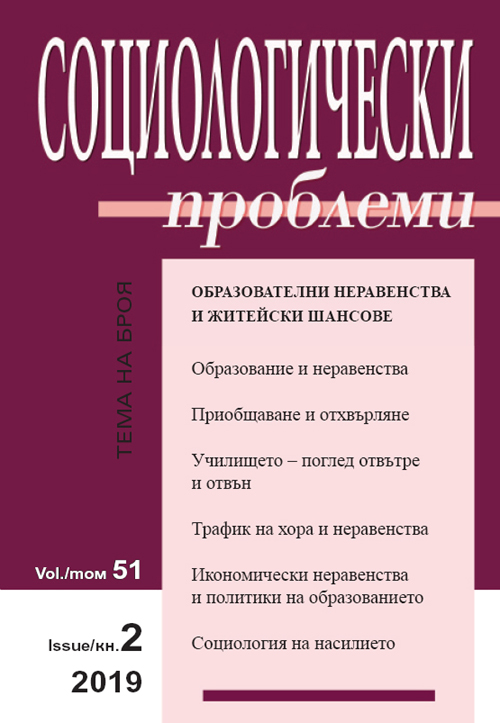
Keywords: quality of education; equity; social inequalities; social mobility
The aim of the article is to compare the normative visions of the quality of education (of the World Bank, OECD, UNICEF, UNESCO, Law on Pre-school and School Education – LPSE, Bulgaria) with the everyday perceptions of respondents, working in the sphere of education, about the quality of education (QE) and their assessment of that quality in different types of schools. The analysis is based on data from a sociological research, conducted in four regions of Bulgaria in 2018. The study found that there is no link between the declared objectives of the LPSE and the practice. The quality of education is being redefined on a daily basis in accordance to different schools – in some schools the QE criteria are low, in others – they are high. The “profile” of the predefined QE depends on the perception of the social milieu and family background of the children – the ethnic and social status of the parents, the place of residence. Respondents shared the following views on the relation between school education and subsequent stages of pupils’ life trajectory: When attending rural (often Roma) school (or school in a poor neighborhood) follows – vocational high school – low-skilled profession – local market. When attending elite primary school follows – private lessons – elite high school – higher education – high professional qualification – national or global market. These two extreme varieties of educational and life trajectories presuppose social homogenization of students, because the “milieu” chooses the school, and the school conforms to the “milieu”. The milieu predetermines the school and the future life trajectory of children, the school is just a tool for reproducing social inequalities. This situation initially blocks the normative vision for children’s equal access to quality education.
More...Keywords: estrada musicians; socialism; everyday life; media culture
The text presents the results of a study of stories about everyday life during the last years of the socialist past (1983–1989) by representatives of a specific professional group – ‘Estrada musicians’. The main goal is to highlight the differences in the two regimes of history in the memories of the socialist popular culture. The first regime of remembrance (1990-1992) is a time of the emotionally charged anti-communist speech in the media like the Democracy newspaper, and vice versa – a strong defense of socialist values in the Duma newspaper. The second regime of remembrance is after 2010, when “nostalgia for socialism” stands out as one of the dominant emotions.
More...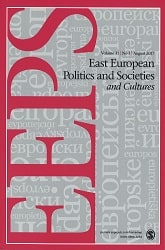
Keywords: Bulgaria; migration; activists; protest;
Historically, civic activists who left their home countries in the wake of protests would either risk disappearing in anonymity or become engaged in political “exile networks.” However, since the outbreak of the “global wave” of protest, the ability of activists to take advantage of freedom of movement and technological advances in social media changed the framework and conditions of such “exile.” This article addresses the question of what happens when protest activists decide to go abroad to study, work, and build a life. We focus in particular on the case of Bulgaria, the fastest shrinking country in the world. On the basis of structured qualitative interviews with Bulgarian activists who have gone abroad in the aftermath of the 2013 Bulgarian protests, we trace how migration and intra-EU mobility affect the political participation of activists, the ways in which they participate, and their diagnoses of the present. In other words, we explore whether one can speak of “exit after voice,” leading in the long run to a decrease in activism. We argue instead that we are witnessing a transformation of the dichotomy “exit-voice” into a more complex scale of forms of protest organization and participation, facilitated by social media and the freedom of movement within the EU. Herein, the real risk might be not that migration leads to political passivity, but that the new “voice” found through the experience abroad remains rather marginal as activists’ networks are transformed and community building becomes a challenge in an increasingly precarious world.
More...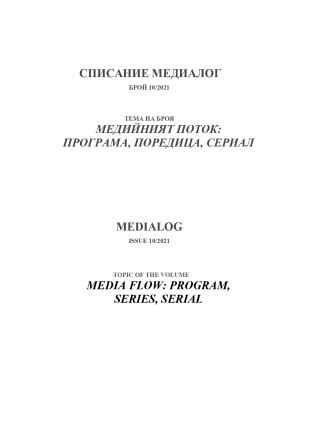
Keywords: Lilyana Deyanova; memory; time; sociology; history
In the end of September 2021 one of the celebrations of the academic community took place – colleagues and friends congratulated prof. Lilyana Deyanova with the publishing of the anniversary anthology ‘Time and Memory’. Compilers and organizers of the academic celebration are Maya Grekova, Petya Kabakchieva, Momchil Hristov, Milena Yakimova.
More...
Keywords: professional autonomy; general practitioners in the primary health care; health reform
The article analyzes the changes taking place in the professional autonomy of general practitioners (GPs) in the context of health care reform since the late 1990s. Using the concept of professional jurisdiction of Andrew Abbott and data from an empirical study conducted among GPs in Tryavna and their patients, the analysis shows the change in the three levels of professional autonomy (diagnosis – treatment – follow-up) with bureaucratic principles. The observed changes transformed medical care into services and patient attitudes into client. The article problematizes relationships between the state (reform), the primary care doctors (GPs) and their patients through the prism of professional autonomy and focuses on the question of whether the criticized health reform has not become a convenient routine.
More...Keywords: Communism; Romania; Bulgaria; 1945-1947; Georgi Dimitrov;
The Romanian-Bulgarian relations were assigned the role of satellites belonging first to the Axis, and then to U.S.S.R., following the regulation of the territorial statute of South Dobrudja on September 7th 1940, through the Treaty from Craiova. After the Red Army has entered Bulgaria, on September 8th 1944, an unusual fact has intervened between Bucharest and Sofia, from the perspective of Kremlin’s influence, of course: the priority of Bulgarian political, ideological and diplomatic factors over the Romanian ones, unprecedented fact in the history of almost seven decades of the modern bilateral relations. The lack of human and ideological resources of the Romanian Communist Party has become obvious during the not even declared competition with the Bulgarian Communists and their leader, Georgi Dimitrov. The Communist Bulgaria has become a model that Romanian communists do not only seriously took into account, yet, at least the year King Mihai I has abdicated (1947), they zestfully were also studying and copying, as the case may have been.Being a so-called People’s Republic even since September 1946, following a falsified popular referendum, Bulgaria has undertaken during the next months to coordinate plans of internal and external politics of Romania. In order to finalize a “Bulgarian way” in Romania, the government led by Petru Groza and the media of propaganda, and mainly the press official of the Romanian Communist Party, “Scânteia”, have scrupulously assumed the role of protagonists. And Communist Bulgaria, just like U.S.S.R., has become for more than two years (1946- February 1948) an extremely important and valuable topic of the Romanian public speech, of the Romanian Communists’ confirmation, of establishing the project for instituting the totalitarian regime. The similarity of actions and of institutes’ organization is striking for this short period, and the treaty signed in January 1948 is nothing but the final of a stage extremely abundant in models and suggestions for the Romanian communists.
More...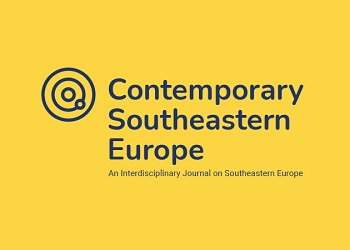
Keywords: Bulgaria; Revival Process; Turkish minority; post-memory; generation after;
This research paper looks at the “generation after” the so-called “Revival Process” (1984–89) in order to explore the intergenerational transmission of memories of family traumas related to the largest assimilation campaign in Communist Bulgaria, which was implemented in the 1980s. To investigate how young Turks and Muslims hold, recollect, and contemplate family memories, this qualitative empirical research was conducted through in-depth interviews complemented with a semi-structured and theme-guided questionnaire. Adopting an ethnographic sensibility, this study unravels an inconspicuous yet present web of family memories about the Revival Process and its aftermath, and an accompanying narrative that is verbalised in the most intimate spaces of everyday life. At a personal level, it turns out that the Turkish and Muslim generation of post-memory does not ransack the history of the Revival Process for political profit. Instead, it argues that there is a lack of self-examination with respect to the recent past in Bulgaria.
More...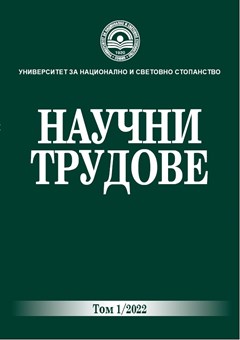
Keywords: rofessional standards; data disclosure; public opinion polls; representativeness
The article presents a comparative analysis of the established and applied professional standards in the publication of data from sociological research, with an emphasis on public opinion polls. This analysis is oriented in three directions: 1) description of the professional standards of some international associations, which lay the foundations for the application of ethical principles and the observance of such standards in the field of public opinion polls; 2) monitoring the discussion of the Bulgarian professional community and in particular the activity of the Bulgarian Sociological Association, related to the approval of patterns of professional standards when publishing data from pre-election surveys; 3) analysis of the Bulgarian research agencies’ publications results of pre-election surveys in the period 2014 – 2021 through a prepared monitoring tool, seeking an answer to the question: to what extent is it legal and in accordance with the professional standards the presented and published data from sociological (pre-election) research in the election campaigns periods. It is monitored whether and in what way the research agencies and centers present the passport of the research, the results of which are announced. The main monitoring indicators are derived from the Electoral Code, the codes of ethics and statements of ESOMAR, BSA, BAMOR and ABRO and include: contracting authority, contractor, financing, passport in a box, margin of error, period of conduct, sample –volume, method, representativeness, method of information registration, percentage of non-respondents, weighting, comparability, wording of the question, indicated base of the shown shares for the individual parties and place of publication.
More...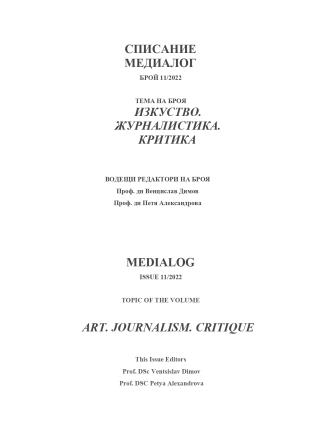
Keywords: Petya Kabakchieva; sociology; power; civil society; identity; community; values; education; inequalities
A collection of works ‘Sociology as a civic commitment’ dedicated to the 65th anniversary of Professor Petya Kabakchieva, (Sofia, St. Kliment Ohridski University Press, 2022) contains articles and studies written by established Bulgarian sociologists and social scientists and their younger followers. Compilers of the collection are Maya Grekova, Mila Mineva, Lea Vaysova and Dimitar Blagoev.
More...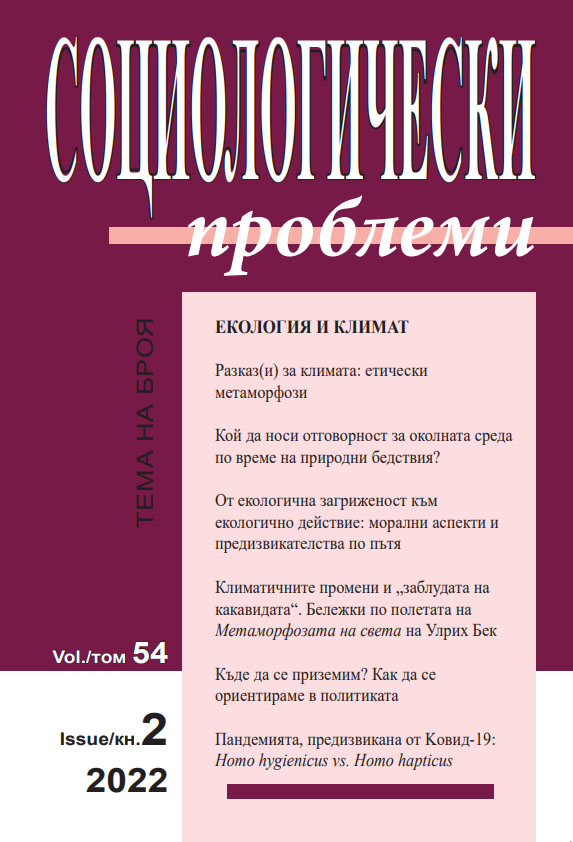
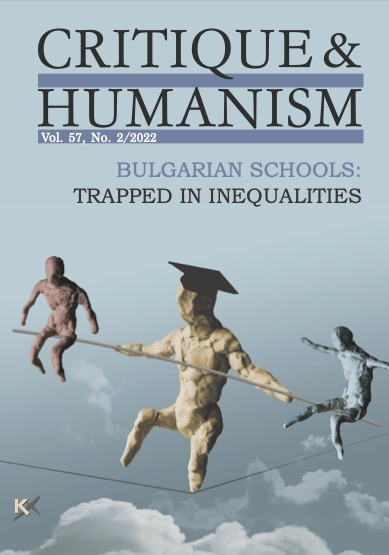
Keywords: educational inequality; intellectual achievement; cultural capital; school competition; social vs educational function
This article is based on discourse analysis and secondary analysis of data from research conducted under the project Educational Inequalities and Social Opportunities. Strategic Objectives of the Reforms in Bulgarian Secondary Education and Practical Results. The first part outlines the problem nodes in the relationship between education and inequality as found in the secondary analysis and the quantitative modules of the study. The second part examines how these problem nodes are addressed in the discursive strategies of the actors who speak publicly on the topic. The dominant public discourse on education, crisis in education, and educational reform in Bulgaria has been found to be what we have called ‘project-entrepreneurial’. It essentially responsibilizes families, identifying them as being responsible for their children’s educational achievement by forming their educational ‘motivation’. However, different strategies are conducted through this dominant discourse. It is employed by public and administrative actors when speaking about the need to reform the Bulgarian school system. This discourse is also employed by actors from the field of business who, however, responsibilize the school system through the construct of ‘adequacy to the needs of business and the labour market’. This discourse is also employed by NGOs whose mis- sions are oriented towards positive discrimination. The different strategies amplify the effects of the dominant discourse as follows: students are measured on the basis of intellectual achievements which the dominant discourse reduces to educational motivations formed in the family. This supports and legitimizes a process of ever earlier selection of children based on intellectual achievement, and serves to show desirable families that the school cherry-picks its children and to legitimize the reproduction of cultural capital. In the competitive environment in which they are placed, schools behave completely adequately and rationally – the successful ones become even more successful, while the unsuccessful ones occupy a vacated niche, that of social welfare. In this way the Bulgarian school system, while producing and reproducing inequality, still counteracts social exclusion.
More...
Keywords: quality of education; values-based and instrumental functions of education; social inequalities; social environment; social mobility
This article compares the normative visions of quality of education (of the World Bank, OECD, UNICEF, UNESCO, and Bulgaria’s Pre-school and School Education Act – PSEA) with the everyday perceptions of respondents working in Bulgarian education, and with their assessment of the quality of education in different types of schools in Bulgaria. The study’s (qualitative research conducted in 2018) conclusion is that there is no connection between the declared objectives of the PSEA, which unite the modern and humanist visions of international documents, and actual practice. This is due to two reasons. The first reason has to do with the fact that while the normative visions are informed by the humanist-holistic notion of education, the practical view of education is driven solely by economic considerations. The second reason comes from the actual state of affairs in Bulgaria: quality education is thought of and implemented as ‘special profile’ education that takes into consideration pupils’ family and social environment (the ethnic group and social status of parents, the place of residence, ‘the street’). Respondents shared the following views on the relationship between school education and pupils’ subsequent life trajectories: Pupils attending a rural (often Roma) primary school (or a school in a poor neighbourhood) go on to vocational high schools and low-skilled jobs on the local market. Pupils attending an elite primary school have private tuition and go on to elite high schools, higher education and high-skilled jobs on the national or global market. These two extreme varieties of educational and life trajectories presuppose social homogenization of pupils because they attend schools that are determined by and conform to their social environment. The social environment predetermines the school and the future life trajectory of children, and the school is just a tool for reproducing social inequalities. This situation inherently blocks the normative vision of children’s equal access to quality education in Bulgaria.
More...
Keywords: Roma children; children with special educational needs; discrimination at school; Pazardzhik
According to the Pre-school and School Education Act (2016), ‘“[i]nclusive еducation” is the process of understanding, accepting and supporting the individuality of each child or pupil and the variety of needs of all children and pupils’. In place of various strategies and programmes for integration, inclusion, etc., there is now an Act decreeing the need for equal access to education for every child, attention to the individual characteristics of each child, and overcoming the stigmatization of differences between children in the name of achieving ‘integration’ of them all. It turns out, however, that even in the Act the focus has been shifted to removing the obstacles to learning, while in its actual implementation the integration/inclusion of all children has been completely forgotten.
More...
Keywords: intersectionality; class; gender; ethnicity; educational inequalities
Within the framework of a strictly defined intersectional analysis of simultaneous negative impacts, very few Bulgarian sociological studies have taken into account the effects of class, ethnicity, and gender. This article introduces the concept of intersectionality, which has been underused in Bulgarian sociology but can be useful in explaining multiple inequalities. It aims to theoretically distinguish the cognitive potential of the different approaches to the complex set of inequalities that are included in the concept of intersectionality: on the one hand, intracategorical, anticategorical, and in- tercategorical, and on the other hand, structural and political. The purpose is to demonstrate their empirical applicability in analysing specific situations of multiple exclusion and deprivation in terms of educational opportunities. The article interprets results of international comparative empirical studies that apply the concept of intersectionality in exploring fairness of educational opportunities and the role of participation in adult learning, which is an important mechanism for reducing the negative effects of multiple inequalities.
More...